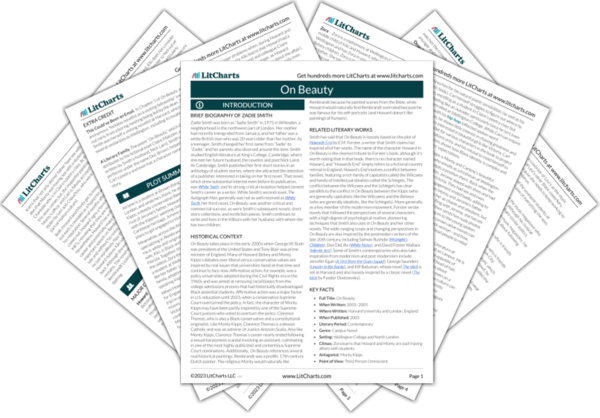As always, Claire likes to present herself as knowledgeable on every subject, and so she enjoys speaking with Yousef because it gives her a chance to show off her French, allowing her to display her multiculturalism. Like many characters in the story, Claire is chasing her own idea of authenticity, and for her, Chantilly (who is Black) fits more with her idea of the authenticity than the white Ron and Daisy, suggesting that Claire equates authenticity with things that are “exotic” to her.
